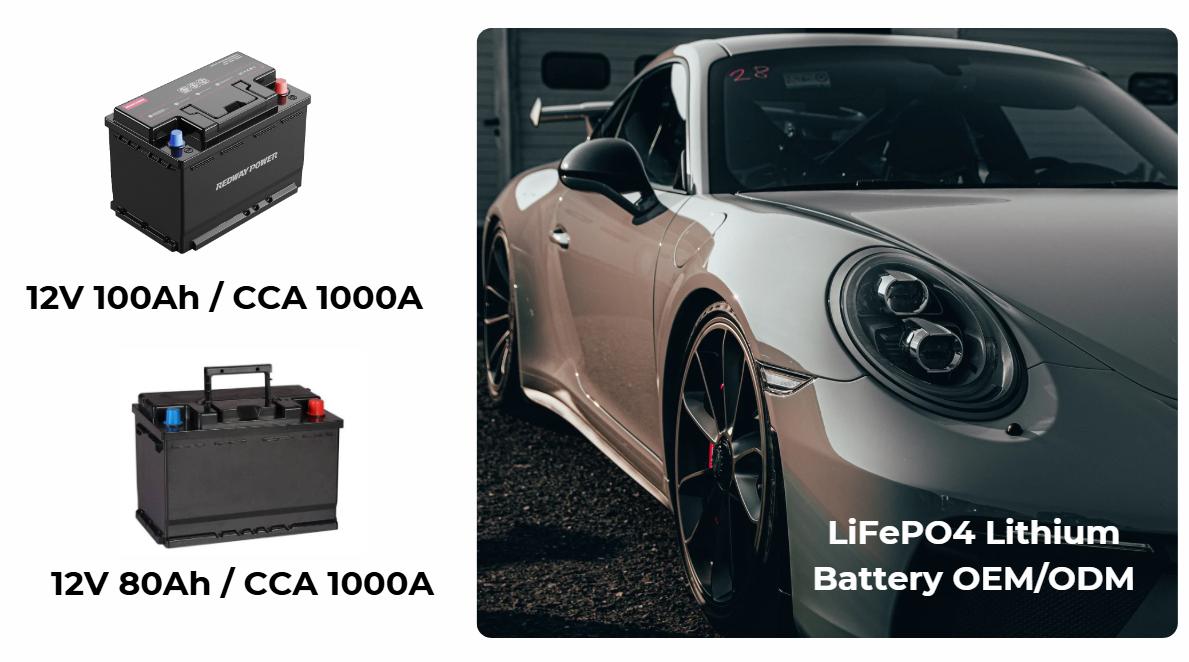
What You Need to Know About High-Capacity Lithium Batteries
High-capacity lithium batteries, such as the 48V 100Ah and 48V 150Ah LiFePO4 models, provide significant energy storage solutions for various applications, including renewable energy systems and electric vehicles. Understanding their features and benefits can help users select the right battery for their specific needs.
What is a high-capacity lithium battery?
A high-capacity lithium battery refers to batteries designed to store and deliver substantial amounts of energy. For example, a 48V 100Ah lithium battery can provide up to 5,120 watt-hours (Wh) of power, making it suitable for demanding applications like electric vehicles, solar energy storage, and backup power systems.High-Capacity Battery Characteristics Chart
| Specification | Description |
|---|---|
| Voltage | Varies (e.g., 48V, 51.2V) |
| Capacity | High capacity (e.g., 100Ah, 150Ah) |
| Energy Output | Significant watt-hours (Wh) |
How does a 48V 100Ah lithium battery work?
A 48V 100Ah lithium battery works by storing electrical energy through chemical reactions within its cells. It consists of multiple cells connected in series to achieve the desired voltage. During discharge, the stored energy is released as direct current (DC), powering devices or systems efficiently.Battery Operation Chart
| Step | Description |
|---|---|
| Charging | Energy is stored during charging |
| Discharge | Energy is released to power devices |
| Chemical Reaction | Lithium ions move between anode and cathode |
What are the benefits of using a 48V 150Ah lithium battery?
The 48V 150Ah lithium battery offers several advantages, including higher energy capacity (up to 7.68 kWh), longer lifespan (often exceeding 5,000 cycles), and improved efficiency compared to traditional lead-acid batteries. This makes it ideal for larger solar systems and electric vehicles requiring more power.Benefits Comparison Chart
| Feature | 48V 100Ah Battery | 48V 150Ah Battery |
|---|---|---|
| Capacity | Up to 5.12 kWh | Up to 7.68 kWh |
| Lifespan | Approximately 5,000 cycles | Approximately 5,000 cycles |
| Efficiency | Higher than lead-acid | Higher than lead-acid |
How does the Jita 12V 300Ah LiFePO4 battery perform in RV applications?
The Jita 12V 300Ah LiFePO4 battery excels in RV applications due to its high capacity and deep cycle capabilities. It provides reliable power for appliances, lights, and other devices while maintaining efficiency over extended periods. Its lightweight design also allows for easier installation and mobility within RVs.RV Battery Performance Chart
| Specification | Description |
|---|---|
| Voltage | 12V |
| Capacity | 300Ah |
| Cycle Life | Up to 3,500 cycles |
What applications are suitable for a 51.2 Volt lithium battery with 100Ah capacity?
A 51.2 Volt lithium battery with a capacity of 100Ah is suitable for various applications such as solar energy storage systems, electric vehicles, and backup power supplies. Its higher voltage allows for efficient operation in systems that require more power without increasing current levels excessively.Application Suitability Chart
| Application | Description |
|---|---|
| Solar Energy Storage | Stores excess energy generated from solar panels |
| Electric Vehicles | Provides reliable power for electric propulsion |
| Backup Power Supply | Ensures continuous operation during outages |
Where can you find reliable information on high-capacity lithium batteries?
Reliable information on high-capacity lithium batteries can be found on manufacturer websites, industry publications, and educational resources focused on renewable energy solutions. Websites like Battery University and specialized forums provide valuable insights into specifications, applications, and maintenance tips.
Expert Views
“High-capacity lithium batteries like the 48V 100Ah and 150Ah models are revolutionizing energy storage,” states Dr. Lisa Reynolds, an expert in renewable energy technologies. “Their efficiency and longevity make them indispensable for modern applications ranging from solar systems to electric vehicles.”
FAQ Section
Q: How long do high-capacity lithium batteries last?
A: High-capacity lithium batteries typically last between 5 to 15 years, depending on usage patterns and maintenance practices.Q: Can I use different voltages together?
A: No, mixing different voltages can damage both the batteries and connected devices; always match voltage requirements.Q: Are high-capacity batteries safe?
A: Yes, when used according to manufacturer guidelines and equipped with proper management systems, high-capacity batteries are safe and reliable.
Know More
How to Ensure Performance and Safety of Lithium Batteries
What You Need to Know About High-Capacity Lithium Batteries
What Are the Best Options for Forklift Batteries?
What Benefits Do 24V Lithium Batteries Provide for Users?
What Are the Benefits of Lithium Deep Cycle Batteries?
